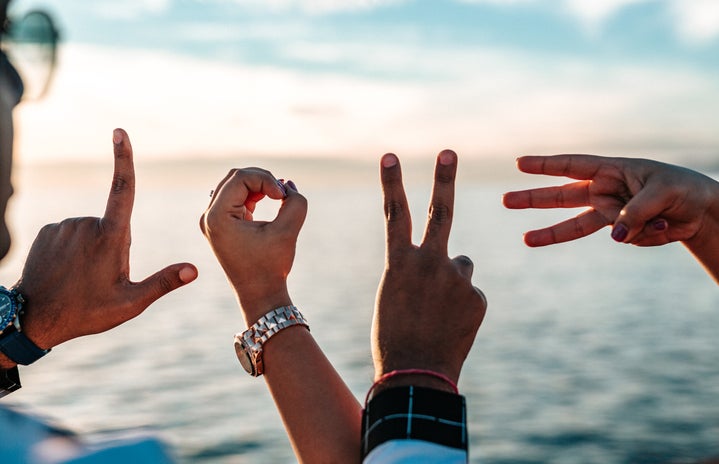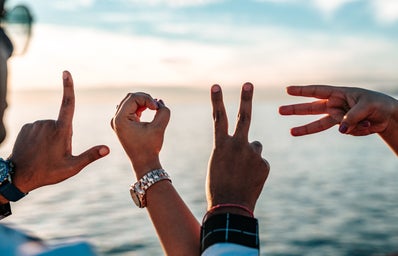Growing up in a family with conservative parents, the idea of coming out never seemed possible. When I say my parents are conservative, I don’t mean that they are uptight. In fact, they are far from it. My parents are the two people that I know I could say just about anything to and be enveloped with love and support. However, when it came to sexuality, it had always been blurred. They never outright denounced the LGBTQ+ community, but they were in no way allies.
My parents’ prejudices became a mirror that I used to see myself. Anytime my dad would say “eww” when seeing two men kiss on a television show, it felt as though it was aimed at me. My mom’s expressed confusion about how someone could be “into that sort of thing” didn’t help with the confusion I already held. For the first eighteen years of my life, I believed that the feelings I had been harboring for other girls were wrong. It wasn’t until I went away to college that I realized the only thing wrong was my way of thinking.
I spent the first two years of college coming to terms with my sexuality, meeting people, exploring my emotions, until I found myself in a serious relationship. I had fallen in love and only a very few people in my life knew this. Luckily, my girlfriend was understanding, and she didn’t push me to come out. But still, it just didn’t feel right. I had dreamed of finding love for so long, and now that I had finally found someone I truly wanted to be with, it felt wrong to hide it. So, I decided that twenty-gay-teen would be my year. The year I would let my true self-shine to everyone.
Courtesy: Giphy
Slowly but surely, I began to come out to those closest to me. First to those who I went to school with, then to those I knew back home. The more people I came out to, the easier it got. Then came Thanksgiving break. By then, I had come out to everyone in my life except my family. I had built up so much pressure around it thinking of all the ways I would do it, but I never took any opportunity I got. The break was coming to an end, and I was just as submerged in the closet as when I first arrived.
Finally, I built up the courage and marched into my younger sister’s room. I told her that the “friend” I spent so much time on the phone with was not just a friend but rather that she was my girlfriend. The words came out so easily and were received with a loud “I knew it!” from my sister. This was the kind of reassurance that I needed. It made coming out to my parents seem like less of a “what if” and more of a “when.”
That “when” became winter break. I had planned to go home for a month during the holidays so I knew within this break somehow, someway I would come out. I had been home for a few days when I came out to another member of my family: my mom. It was five in the morning, and I had been on the phone with my girlfriend all night when my mom came in to ask how long I had been on the phone with my “friend.” While I neglected to mention that she was still on the line, I did mention however that my “friend” was actually my girlfriend and that I was gay. She was calm, understanding and told me that she loved me.
That same day I told my younger brother who thought it was best to reassure me by saying “Ellen is gay and everyone loves Ellen!” Next, I told my older brother who is by far the most chill person I know which made telling him very easy.
Then there was only one person left to tell: my dad. We were doing what we do best — watching Netflix — when I knew it was time. I hadn’t even spoken the words when I began to cry. He hugged me tight and asked what was wrong. So, I told him. Then the unexpected happened. “Well duh,” he said as I squeezed tighter, my tears soaking his shirt. Duh? I had spent years building up this moment, saving him for last because I was so afraid of what he’d say. Who would have thought that those two words, two syllables, would be just what I needed to hear?
Courtesy: Giphy
If you are in the closet and feel afraid to come out, know that there are people who love you and will continue to love you regardless of your sexuality. Resources like The Trevor Project and The Human Rights Campaign can help you find the courage you may be searching for.


